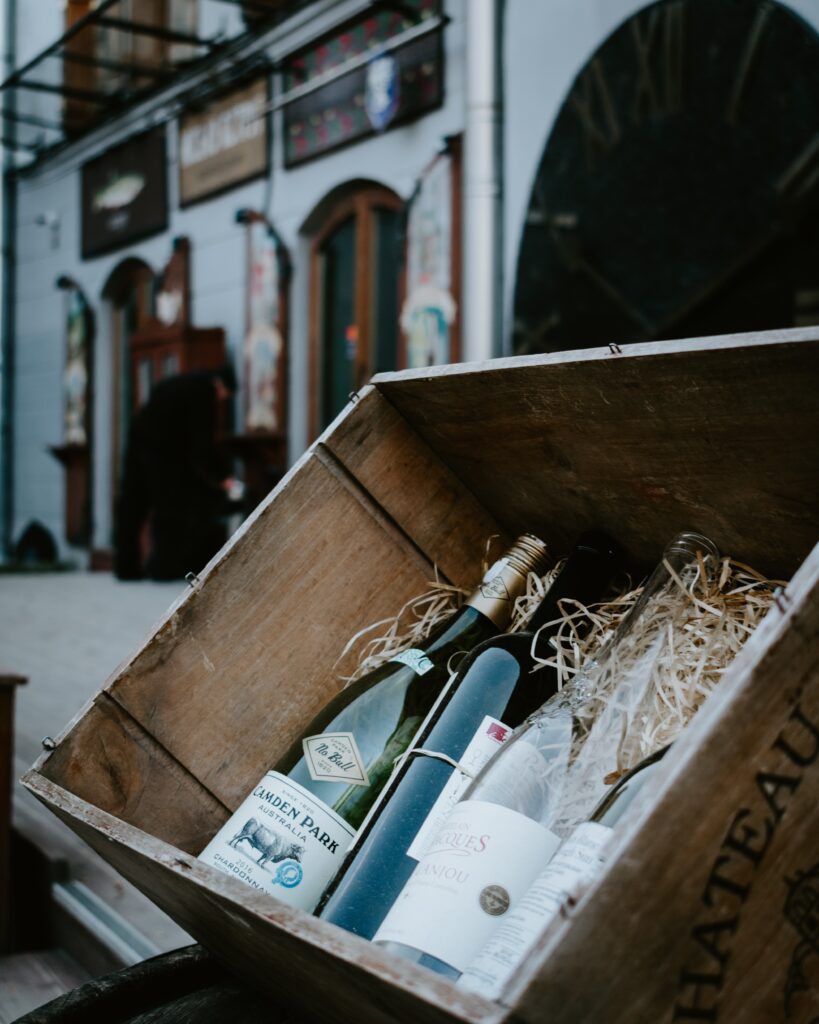US Appeals Court: Florida Cannot Stop Direct-to-Consumer Shipments by Out-of-State Wine Retailers

The United States Court of Appeals for the 11th Circuit recently ruled that the Florida Division of Alcoholic Beverages and Tobacco (ABT) waited too long–by 16 years–to try to change a district court ruling that allows out-of-state wine retailers to sell and deliver wine directly to Florida consumers. See Bainbridge vs Director of the Florida Division of Alcoholic Beverages and Tobacco, https://caselaw.findlaw.com/court/us-11th-circuit/114809444.html. The appellate court’s August 2023 order is rooted in the particular language of the trial court’s order that was intended to settle the question over direct-to-consumer wine sales in Florida. The ruling is an interesting coda to the case of Bainbridge vs ABT, which confirmed in Florida the impact of the US Supreme Court’s opinion in Granholm v Heald, 544 U.S. 460 (2005).
Granholm v Heald: Paving the Way
Before we dive into the Bainbridge case, it’s essential to revisit the 2005 decision in Granholm v Heald. In this landmark Supreme Court case, the Court made a pivotal ruling: states allowing in-state wineries to sell wine directly to consumers must also allow out-of-state wineries to do the same. State laws that discriminate against out-of-state wineries are unconstitutional and cannot be enforced. This decision set a precedent that would come to play a vital role in the Bainbridge case.
Bainbridge vs ABT: The Origin
At the time Granholm was decided, the Bainbridge case was pending in the federal court for the Middle District of Florida. The plaintiffs in Bainbridge made the same argument as Granholm, asserting that Florida law (particularly Florida Statutes Section 561.54 and 561.545) violated the principles established in Granholm. In response to the changing legal landscape following the Granholm decision, the ABT agreed to an injunctive order intended to allow out-of-state wineries to sell wine to Florida residents.
The Expansive Bainbridge Order
However, the Bainbridge order turned out to be broader in scope than the ABT had originally intended. While the injunction was meant to apply solely to “out-of-state wineries,” the language of the injunction that the ABT and the plaintiffs proposed was more extensive. It read (in relevant part): “IT IS FURTHER ORDERED that [the ABT] is ENJOINED from enforcing Florida Statutes §§ 561.54 and 561.545.”
This broader language would have allowed for the delivery of all types of alcohol to Florida consumers, not just wine, and from all types of sellers. Recognizing this error, the middle district court, sua sponte (that means: “on its own”) changed the relevant language of the injunction: “IT IS FURTHER ORDERED that [the ABT] is ENJOINED from enforcing Florida Statutes §§ 561.54 and 561.545 against out-of-state vendors and producers” (emphasis added).
The ABT’s Delayed Challenge
Apparently, the ABT did not initially recognize the impact of the language added to the injunctive order. It treated the injunctive order as only applying to out-of-state wineries and continued to enforce the Florida Beverage Laws to prevent out-of-state non-winery vendors from selling and shipping wine to Florida residents.
Well after the injunctive order was entered by the district court, the ABT realized the unintended scope of the injunction in 2018. In an administrative ruling, the ABT acknowledged for the first time that the Bainbridge injunction applied to out-of-state vendors and producers.
Returning to the district court in 2018, the ABT challenged the validity of the Bainbridge injunction, citing two reasons:
- Ambiguity: The ABT argued that the inclusion of the phrase “vendors and producers” made the order ambiguous.
- Scope: The ABT claimed that the Bainbridge injunction exceeded the scope of the original agreement between the ABT and the plaintiffs.
The District Court’s Decision
The district court rejected the ABT’s request to modify the Bainbridge injunction, offering several reasons for their decision:
- Intentional Addition: The phrase “vendors and producers” was intentionally added by the court to correct a material omission by the parties. It was not a clerical error or mistake and, therefore, could not be corrected as the ABT suggested.
- Timing: Even if it had been a mistake, the ABT waited too long to request corrections, violating the Federal Rules of Civil Procedure’s requirement that corrections of type must be requested within 1 year.
- Reflecting Intent: According to the court, the use of the phrase “vendors and producers” accurately reflected the intent of the parties and the court when the injunction was initially entered.
11th Circuit’s August 2023 Ruling
By an order dated August 4, 2023, the 11th Circuit Court of Appeals upheld the district court’s judgment. This decision means that, unless the US Supreme Court reverses the appellate court’s order, the ABT cannot prohibit out-of-state retailers from selling wine directly to Florida consumers.
Conclusion
The Bainbridge case, with its roots in the Granholm decision, showcases the intricate and evolving nature of legal battles in the United States. It serves as a reminder of the significance of precise legal language and the importance of timing in seeking legal remedies. For now, Florida consumers have the freedom to purchase wine from out-of-state retailers, thanks to this latest ruling from the 11th Circuit Court of Appeals.
Do you have questions about direct-to-consumer alcohol sales in Florida? Contact us to schedule a consultation with a beverage attorney.
Because we’re attorneys: Disclaimer. Posted October 8, 2023.

